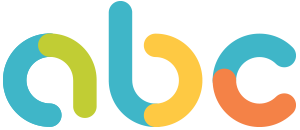What is Autism?
Autism Spectrum Disorder [ASD] is a lifelong neuro-developmental condition that affects communication, social and developmental skills.
Neurodevelopmental Condition

Autism Spectrum Disorder, also known as ASD, is a condition that affects the development of the brain and affects the individual’s ability to have key skills. Some infants show signs in their first 12 months. In others, behaviors become more apparent as late as age 2 or 3. ASD affects an estimated 1 in 59 children and is 5 times more common in boys.
Affected Abilities

Autism Spectrum Disorder [ASD] affects each child differently, hence came the name spectrum. Autism affects a child’s verbal and nonverbal communication and social and behavioral skills. The lack of developmental skills caused by ASD can in turn affect a child’s ability to acquire education, work, and live independently. Therefore, the child may not be able to perform basic daily self-care routines like washing their hands and using the toilet.
Cause of Autism

Autism has no identified cause and no known cure. However today, Autism has a very successful program that can help manage this condition called Applied Behaviour Analysis – ABA.
Recognize the Signs
Not all children with ASD exhibit the same symptoms. Symptoms can vary from mild to severe. It is therefore important to get a specialist’s evaluation so that your child can get an early ABA intervention. If your child exhibits any of the following signs, ask your pediatrician or family doctor for an evaluation right away. It is important to share your concerns with the doctor and get a referral to a Child’s Developmental Doctor who can make an in-depth evaluation of your child.
Few or no big smiles or other warm, joyful, and engaging expressions. Limited or no eye contact.
Little or no back-and-forth sharing of sounds, smiles, or other facial expressions.
Little or no babbling. Little or no back-and-forth gestures such as pointing, showing, reaching or waving. Little or no response to name.
Very few words or no words.
Very few or no meaningful, two-word phrases [not including imitating or repeating]
Loss of previously acquired speech, babbling, or social skills.
Avoidance of eye contact.
Persistent preference for solitude.
Difficulty understanding other people’s feelings.
Delayed language development.
Persistent repetition of words or phrases [echolalia] Resistance to minor changes in routine or surroundings.
Restricted interests.
Repetitive behaviors [flapping, rocking, spinning, etc.] Unusual and intense reactions to sounds, smells, tastes, textures, lights, and/or color.
ABA Programs
Applied Behavior Analysis – ABA intervention is the gold standard of programs for children with Autism that has been supported by substantial empirical research. ABA has transformed many children’s lives and their ability to reach their full potential. In fact, 60% of children who receive ABA at an early age can achieve significant independence in their lives and are able to get an education with typically developing peers and grow to have fulfilling relationships and be productive members of the society they live in.
Early intervention can change your child's life
ABA Program
What is Applied Behavior Analysis and How Can it Help My Child?
Applied Behavior Analysis [ABA] is a scientifically proven method for improving the behavior and skills of individuals with autism and other developmental disorders. It is recommended as the golden standard for early intervention and management in children with autism and developmental delay. ABA is based on the principles of behaviorism, which states that behavior can be understood and changed through the study of observable and measurable actions. ABA intervention focuses on the specific goals and needs of the individual and uses a variety of techniques to help them learn new skills and improve their behavior. These techniques include positive reinforcement, modeling, shaping, and prompting. LEARN MORE
ABA intervention can be used to help children with autism and other developmental disorders in a variety of ways, including:
• Improving Communication skills: ABA intervention can help children learn to communicate more effectively, through techniques such as sign language, picture exchange, and augmentative communication devices.
• Increasing Social skills: ABA intervention can help children learn how to interact with others more appropriately, through techniques such as social skills training, joint attention training, and play intervention.
• Reducing Challenging behaviors: ABA intervention can help children learn how to control their behavior and reduce challenging behaviors, through techniques such as positive reinforcement, behavior modification, and functional behavior assessment.
• Improving Academic skills: ABA intervention can help children learn how to read, write, and do math more effectively, through techniques such as discrete trial training, errorless learning, and fluency-based instruction.
At ABC of Kuwait, ABA intervention is provided by a team of over 100 ABA professionals, supervised by the largest team of Board Certified Behavior Analysts [BCBA] in Kuwait. The BCBAs create an individualized program plan [IEP] for each child and supervise the ABA sessions to ensure progress for the child, and intervene when needed.
Overall, ABA intervention is a highly effective method for improving the behavior and skills of children with autism and other developmental disorders and can have a significant positive impact on their quality of life.
If you are considering ABA intervention for your child, the first step is to fill in the contact form below, and you will:
1- Be contacted by the ABC relations team.
2- Undergo a BCBA consultation to determine whether ABA can benefit your child, and discuss the options you have at ABC and out of ABC.
3- Begin your ABA program: Once it’s established that ABA will benefit your child, the team will take you through the steps of enrollment at ABC.
Early intervention can change your child's life
Ask a Professional
Get professional help today
Please fill out the form below and we’ll get in touch with you to schedule your free consultation.
What you can expect
1- Fill out the form to get in touch with us
2- We’ll set up an appointment for an initial assessment
3- We will tailor a program plan that caters specifically to the needs of your child
4- We will provide you with training to help you implement ABA principles at home and guide you through it
How the Program Works
- Child assessment and development of the individualized program
- Implementing the ABA intervention program at ABC, in school, or at home
- Monitoring progress and adjusting the program as needed

